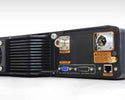
What You Need To Know About Radio Repeaters
, by Joseph Gabriel, 5 min reading time

, by Joseph Gabriel, 5 min reading time

Radio repeaters increase the range of two-way radios by renewing the strength of the signal on its way to the intended destination. A good example of their application is in the trucking industry, as a trucker’s ham radio needs to reach other truckers while on the road all over the country. However, while their purpose is simple enough to understand, how do these repeaters work, and what else can you do with them? Here’s what you need to know about radio repeaters to get the most out of them.
To go into a little more detail, repeaters not only extend the range of radio signals, they also allow radio waves to penetrate obstacles like hilly terrain, dense foliage, bad weather, and more that would obstruct and weaken your radio’s signal. This, in turn, grants your radios greater coverage for difficult spaces or total dead spots for communication.
These benefits apply to both local and long-range communication, as many companies and organizations find themselves struggling with in-building coverage. Multiple walls, especially walls made from materials like concrete, can be difficult for radios to penetrate without the assistance of a repeater.
Of course, the most important thing you need to know about radio repeaters is how they work. Repeaters receive the radio signal from your radio and retransmit simultaneously on another frequency in order to strengthen it, as your signal may otherwise bounce off buildings or diffract around obstacles as the signal travels and gets weaker.
In terms of radio frequencies, there are VHF, UHF, and HF bands. VHF and UHF are the most used and are best if you’re using radios for local communication. HF bands are instead reserved for long-distance communication to prevent interference by having radios conflicting with each other.
Ideally, your repeater should get mounted in a location that provides a virtual line of sight with all radios using it, but you’ll need to consider your structure and environment. Before installing the mount, performing a radio site coverage survey is a good idea to ensure optimal range and coverage when setting up your repeater. This includes details like ensuring the antennae are in an optimal central location, which you should simulate the coverage of before installing the antennae in place.
For industries like trucking, there’s no building or central location for this. Instead, repeater stations place the devices on tall structures or natural sites that are mostly free from obstruction and help facilitate long-range communication.
Picking out any device is difficult when you’re unfamiliar with the various brands and their reputations. To help you pick out your repeater, we should introduce you to a few of the most reliable brands. To begin with, Motorola has been building and innovating upon radios and their accessories for nearly a century. They’re old hat at this, and you can rest assured that you’ll be buying a reliable product when you choose Motorola brand repeaters.
Our next recommendation is Hytera repeaters. Hytera remains on the cutting edge of the industry, providing you with repeaters that are both high quality and flexible. Hytera radios provide versatile features like communicating with both analog and digital radios, Wi-Fi connectivity, and even GPS functionality. This makes Hytera a good choice if your industry needs to use these numerous features.
Lastly, ICOM is known for its robust equipment commonly geared towards intensive industries like construction. Their matching repeaters will ensure that clear communication is available throughout your worksite.
When looking for repeaters, you’ll probably encounter both analog and digital repeaters, but not quite be able to tell the difference between them. The primary difference is the baseband processor. Analog repeaters receive and filter whatever sound they get – which includes both the voice of the speaker and any other background noise that the radio picks up.
Digital repeaters, on the other hand, break down the signals they receive into binary bits. These bits are error corrected and then sent to the transmitter, which in turn becomes a transmission that filters out any background noise and only preserves the speaker’s voice. When the signal gets too weak in either the uplink or the downlink, the voice decoding that filters out background noise will begin to falter, breaking out and dropping out during the transmission.
If you want to get the most range from your repeater, there are a few ways to optimize its performance. You can use higher antennae gain, use more power on the transmitter, or simply improve the location of the antennae. You should also ensure the coaxial cable connecting the antennae and repeater duplexer is a high-quality, low-loss model that is safely out of the way of getting stepped on or worn down by external forces.
If your repeater seems to be underperforming, make sure there are no interfering signals that jam the repeater’s receiver. If a channel is busy, your repeater should have an LED indicator light to alert you.
Many people will try to link repeaters together to extend the range further, but know that doing this successfully can get complicated and thus typically not recommended. To link repeaters together, you can’t simply invert the repeater pair on another site. The repeater downlink output can’t be on the same frequency as a repeater uplink receiver input, so you would need two more repeaters with two other sets of repeater pairs to extend the range with just repeaters.
Repeaters are an invaluable addition for any industry or business using two-way radios. They provide greater range and coverage to ensure you always have crystal-clear communication. Atlantic Radio Communications is one of the best online retailers for all things two-way radio, so get in touch with us today! We’ll be happy to help you learn more about our repeaters and find the right model for your needs.
